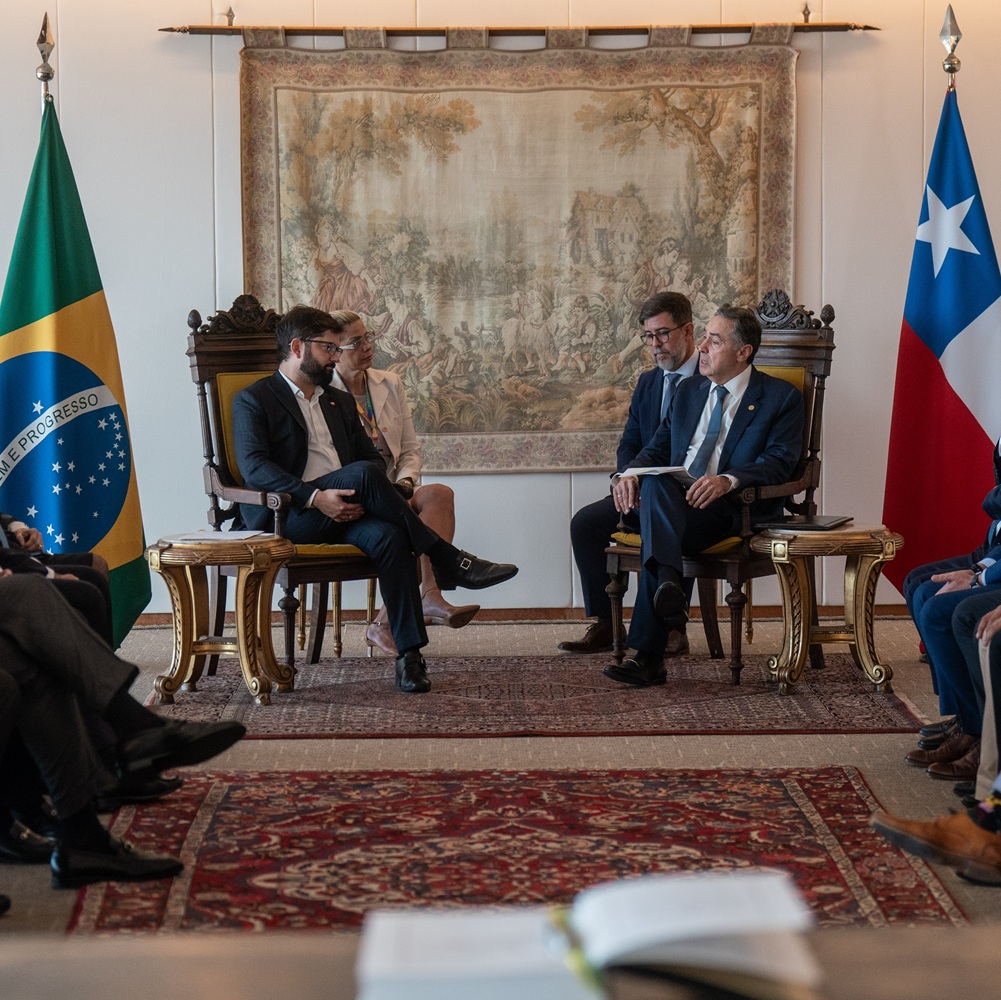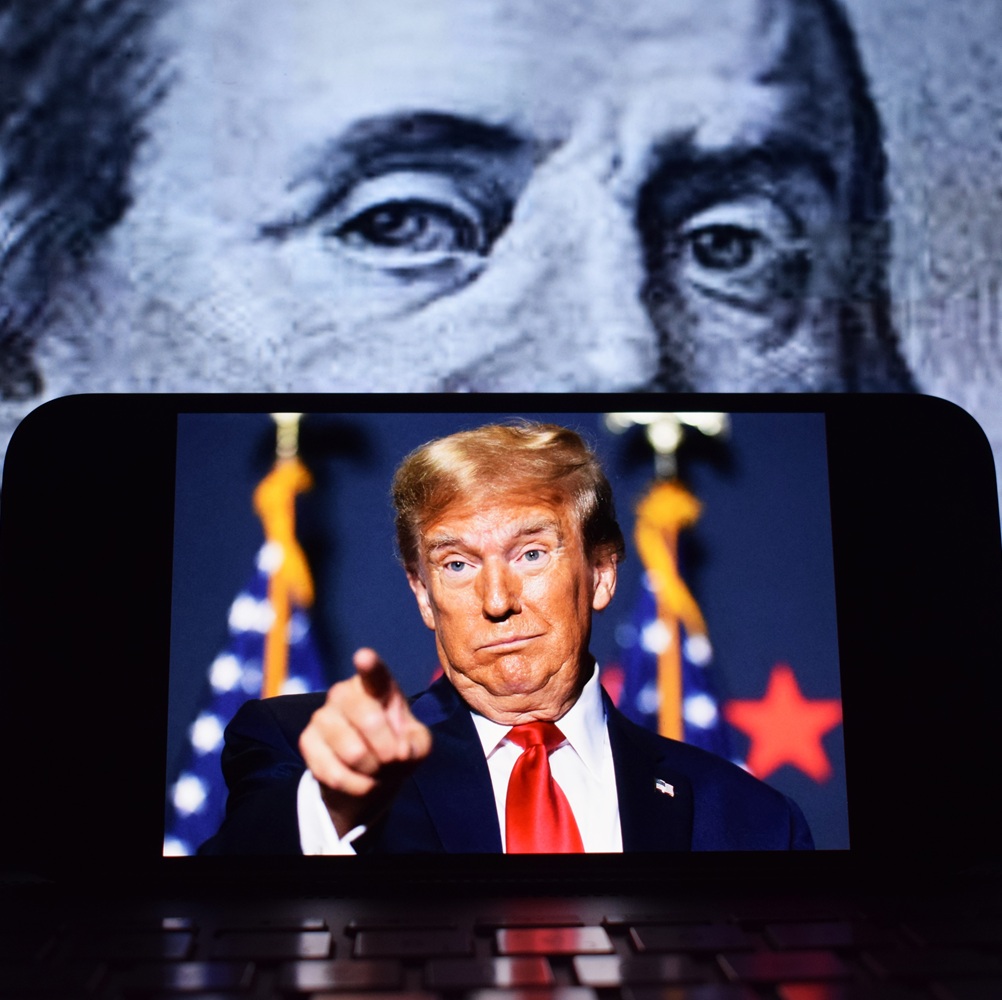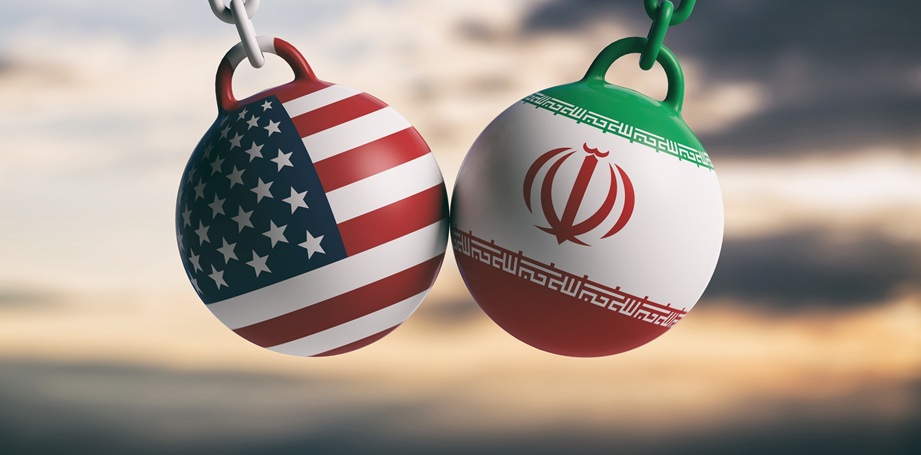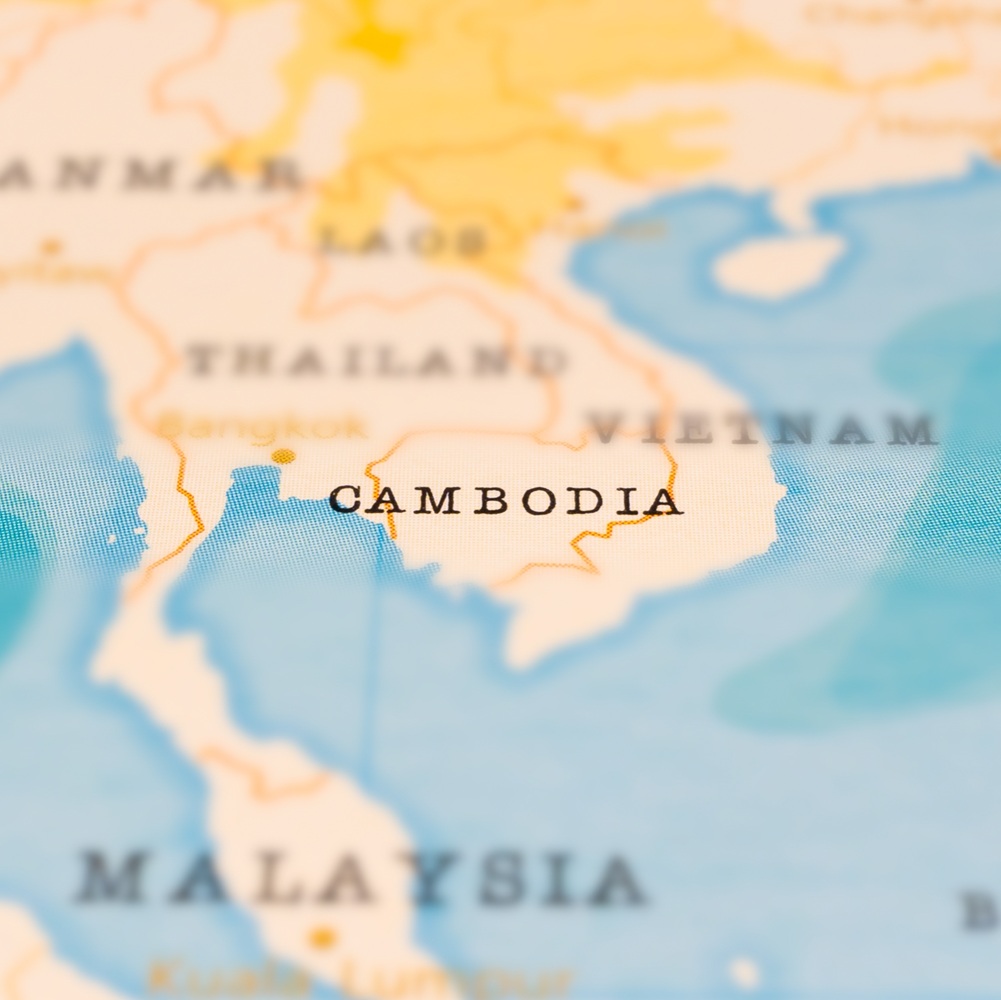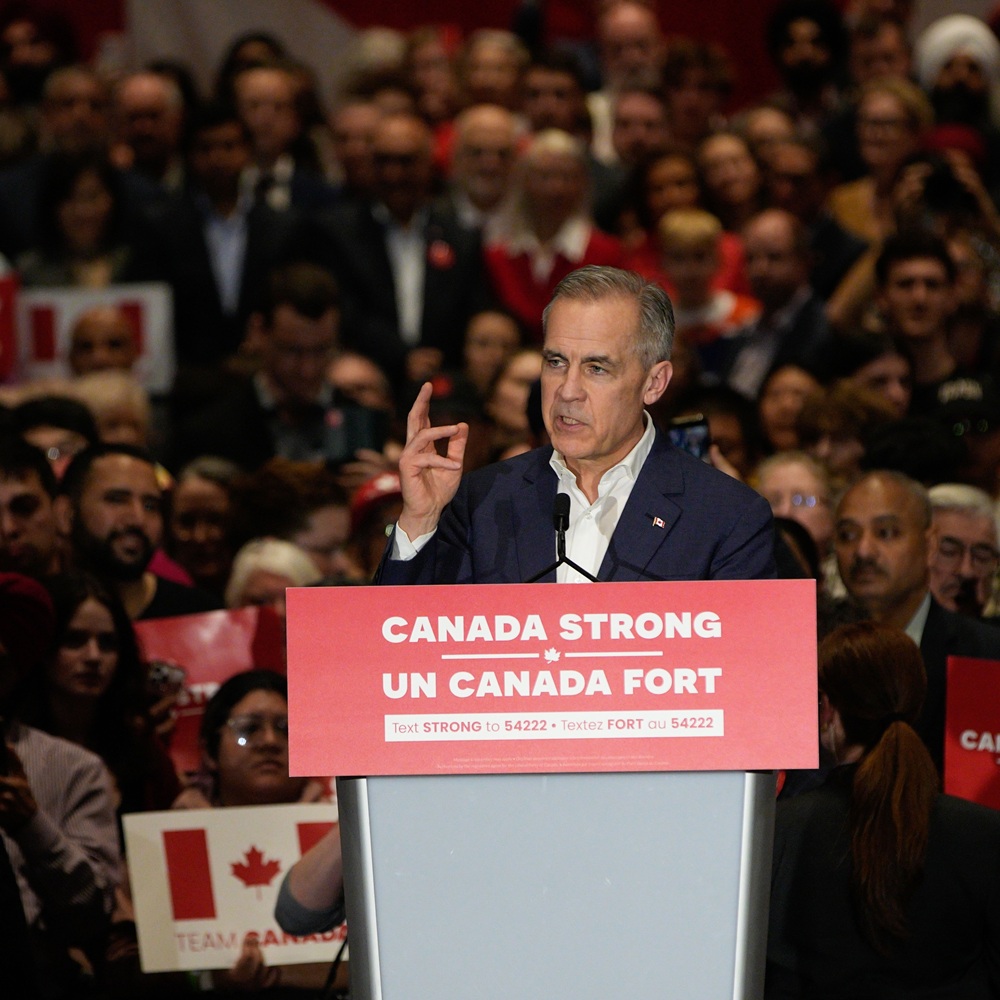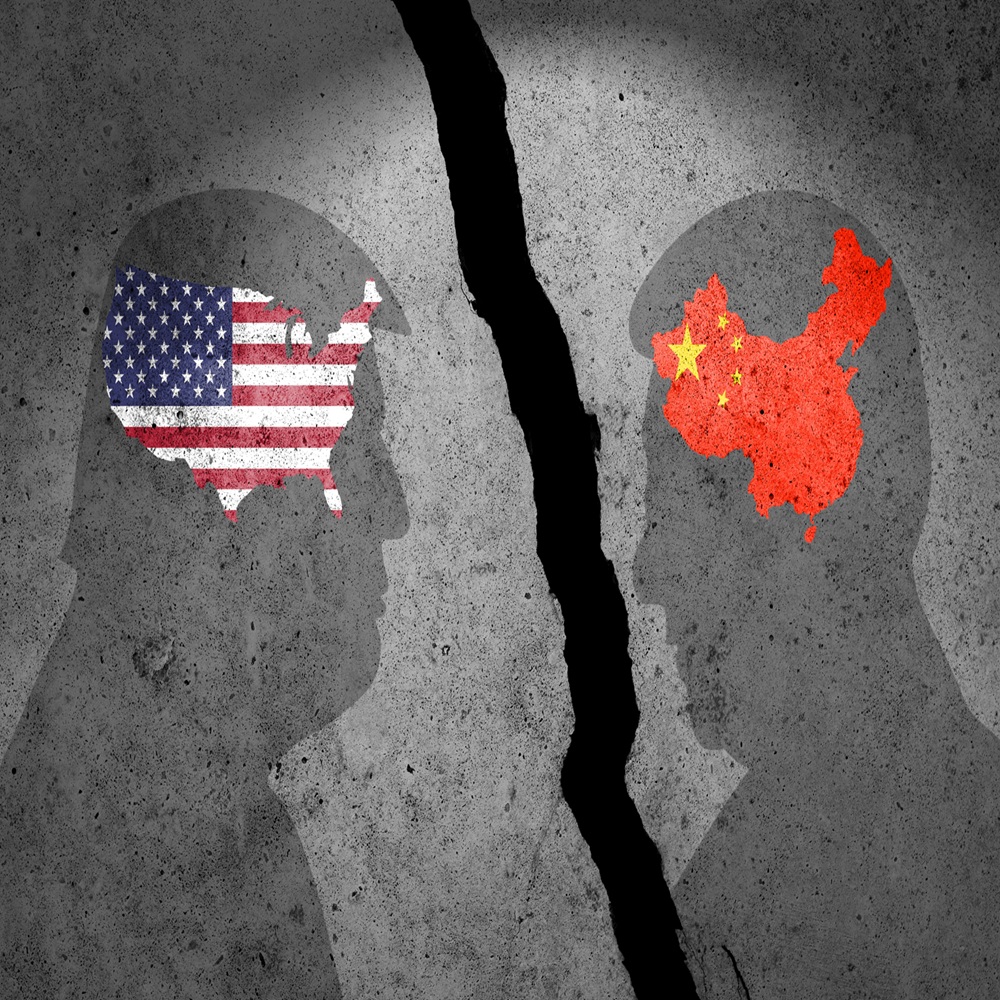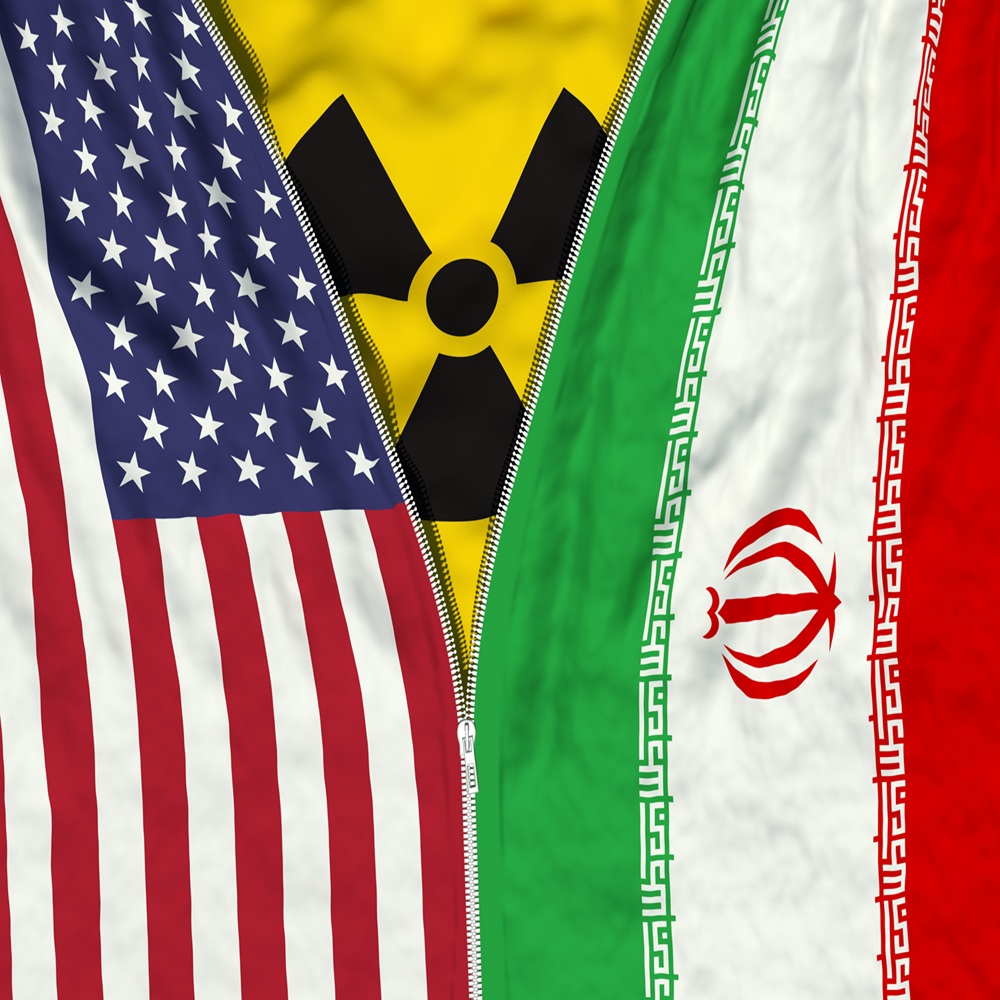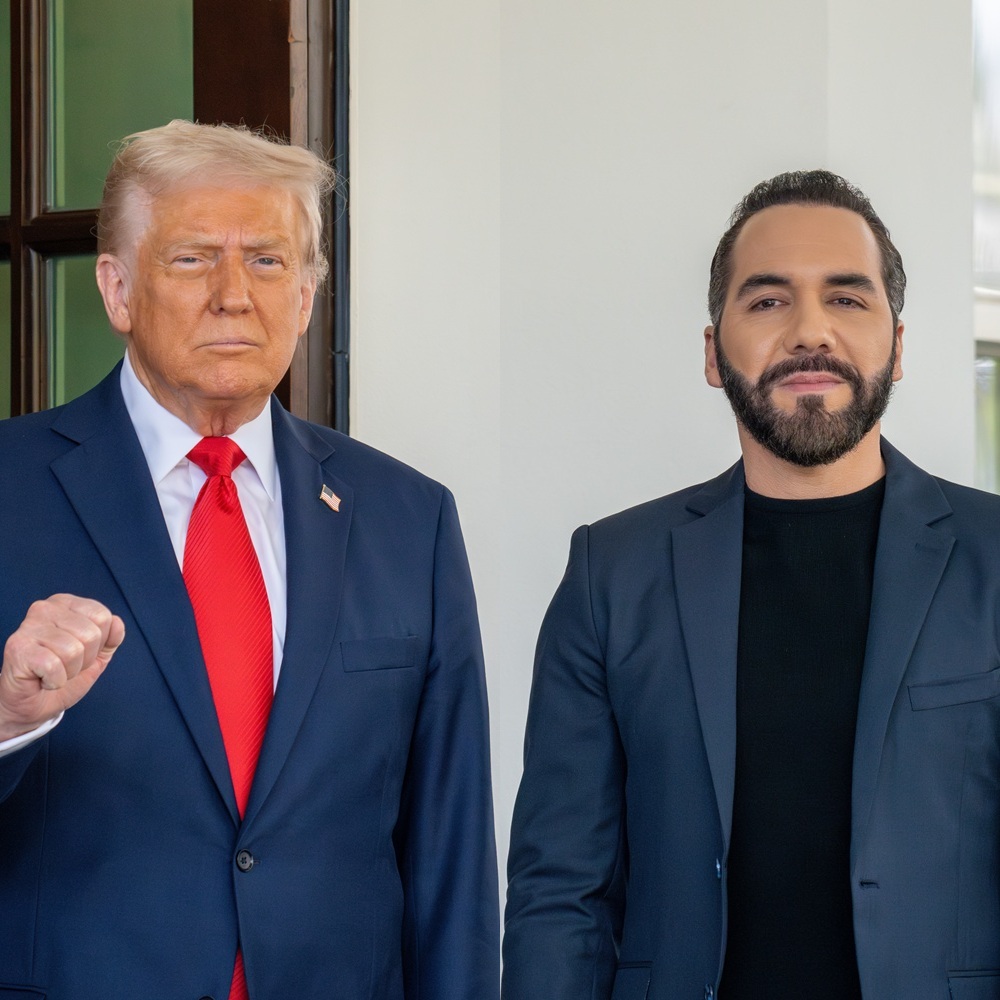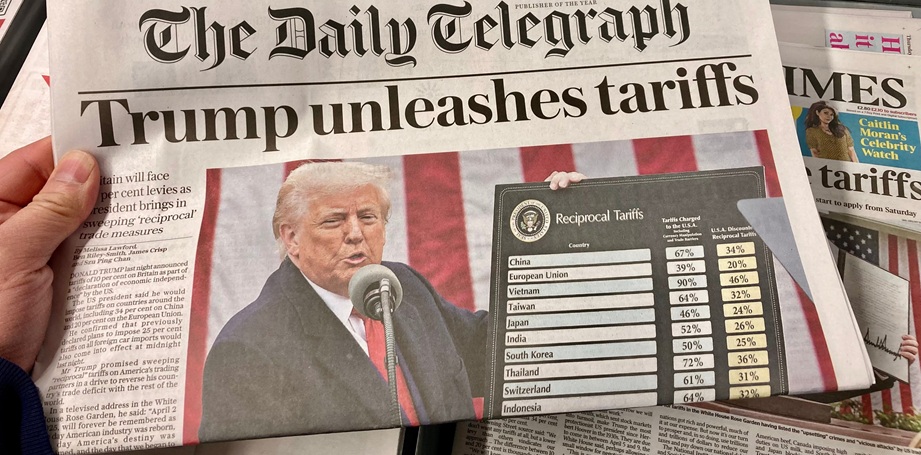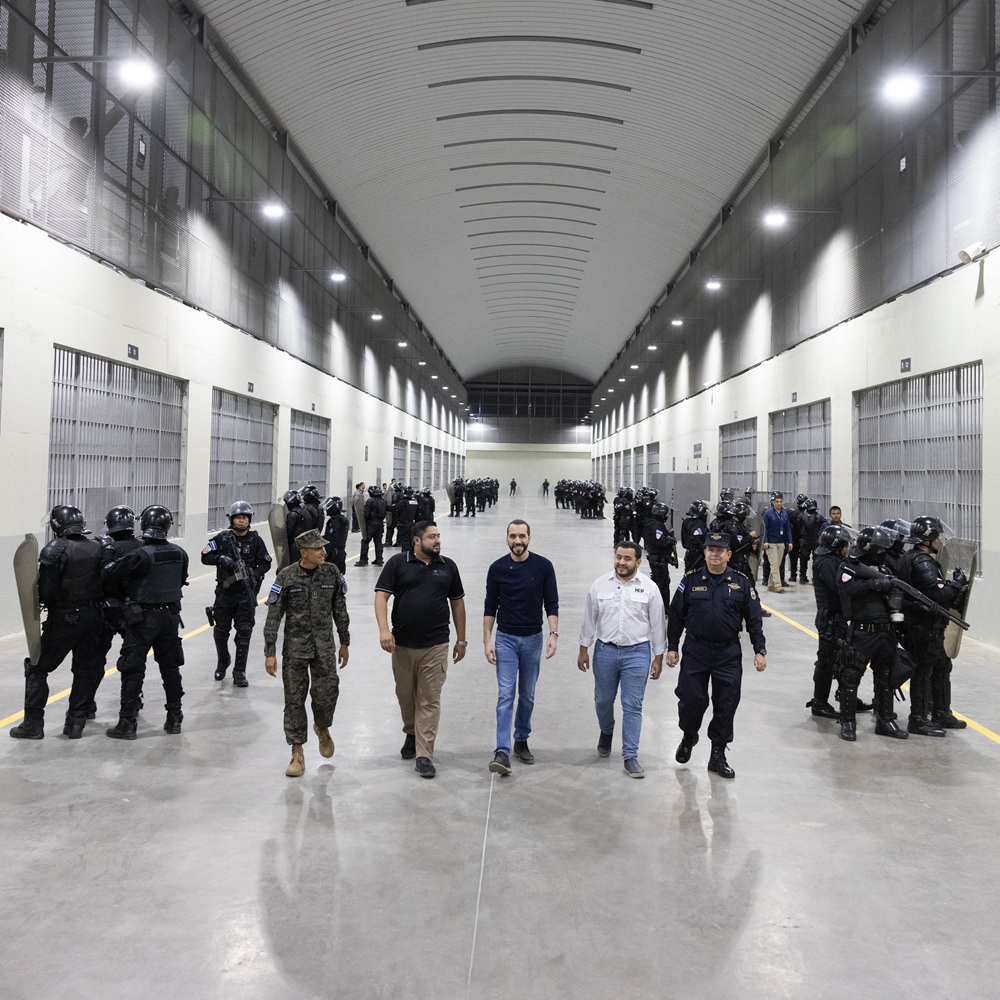The EU at the Crossroads of Global Geopolitics
by Krzysztof Sliwinski
한국어로 읽기
Leer en español
In Deutsch lesen
Gap
اقرأ بالعربية
Lire en français
Читать на русском
Abstract This study examines the short-term, medium-term, and long-term implications of recent "tariff wars" on the European Union (EU). The imposition of tariffs by the United States, particularly the "Liberation Day" tariffs announced by President Trump on April 2, 2025, led to significant disruptions in global supply chains, negatively impacted GDP growth, increased financial market volatility, and exacerbated geopolitical tensions. The EU faces challenges in navigating this shifting geopolitical landscape while maintaining its economic interests and influence. However, the EU has opportunities to leverage these conflicts to strengthen its internal market, foster international cooperation, and emerge as a more resilient global actor. The paper concludes by discussing the potential end of transatlanticism, the future of the EU, and the implications for globalisation in light of the current "tariff chaos." Keywords: Tariffs, Geopolitics, European Union, Trade Wars Introduction Before we examine the topic of tariffs, let us recall that the terms "tariff war" or "trade war" are not strictly academic. International Security scholars generally believe that the notion of war is reserved for military conflicts (both domestic and international) that involve at least a thousand casualties in any given year.[1] One of the most prominent sources in this regard is the Armed Conflict Dataset Codebook, published by the Uppsala Conflict Data Program at the Department of Peace and Conflict Research, Centre for the Study of Civil Wars, and the International Peace Research Institute at Uppsala University in Uppsala.[2] Therefore, "tariff war" or "tariff wars" are more journalistic and hyperbolic. Hence, they are used in this study with quotation marks. Journalists and commentators from various backgrounds often use inflated language to impress their readers. On the other hand, wars are cataclysmic events that have game-changing consequences. In this sense, some tools that state leaders use to achieve political and economic goals, such as tariffs, may have short- and long-term outcomes. Nonetheless, scholars who tend to be precise in their explanations will mainly discuss economic competition rather than "economic war" or "wars." This study investigates the short-, medium-, and possible long-term implications of "tariff wars" on the European Union. These implications appear multifaceted and encompass stability, political relationships, and a broader international order."Liberation Day" On April 2, US President Trump announced new tariffs under the banner of "Liberation Day" – a minimum baseline of 10 per cent tariffs on goods imported from all foreign countries and higher, reciprocal tariffs on nations that impose tariffs on US exports.[3] Crucially, the White House claims that the new tariffs are reciprocal: "It is the policy of the United States to rebalance global trade flows by imposing an additional ad valorem duty on all imports from all trading partners except as otherwise provided herein. The additional ad valorem duty on all imports from all trading partners shall start at 10 per cent, and shortly thereafter, the additional ad valorem duty shall increase for trading partners enumerated in Annex I to this order at the rates set forth in Annex I to this order. These additional ad valorem duties shall apply until such time as I determine that the underlying conditions described above are satisfied, resolved, or mitigated".[4] We did not have to wait for strong reactions to occur worldwide. China vowed to retaliate against the 34 per cent tariffs imposed by the US on Wednesday (April 2 2025) and protect its national interests while condemning the move as "an act of bullying".[5] Doubling down, a few days later, Trump threatened a 50 per cent tariff on China on top of previous reciprocal duties,[6] to which Chinese President Xi Jinping already replied hawkishly.[7] In an equally hawkish response, the Trump administration declared that Chinese goods would be subject to a 145 per cent tariff.[8] In a twist of events, on April 9, the US declared a 90-day-long pause for previously declared tariffs covering the whole world (keeping a minimum of 10 per cent, though) except against China.[9] The next couple of weeks will show whether the world will enter the "tariff arms race" or we will enter some "tariff détente". Importantly, as one can surmise, "Xi has sold himself domestically and internationally as the guy standing up to America, and people that want to stand up to America should get in line behind Chairman Xi".[10] For the EU, European Commission President Ursula von der Leyen described US universal tariffs as a significant blow to the world economy and claimed that the European Union was prepared to respond with countermeasures if talks with Washington failed. Accordingly, the EU was already finalising a first package of tariffs on up to 26 billion Euro ($28.4 billion) of US goods for mid-April in response to US steel and aluminium tariffs that took effect on March 12.[11] Consequently, on April 7, 2025, a meeting was organised in Luxembourg[12] regarding the EU's response to US tariffs on steel and aluminium and the preparation of countermeasures, which included a proposal to impose 25 per cent tariffs on US goods. Interestingly, the "Liberation Day" tariffs do not include Russia. According to numerous commentators, this indicates Moscow's importance as a future trade partner once the Ukrainian war is over. However, the official explanation issued by the White House suggests that the existing sanctions against Russia "preclude any meaningful trade."[13] Tariff imposition: short, medium and long-term consequences Several observable phenomena can be identified regarding their economic ramifications: First, the imposition of tariffs can lead to significant disruptions in global supply chains, thereby affecting industries that rely heavily on international trade. This disruption can lead to increased costs and reduced competitiveness for EU businesses, particularly in sectors such as agriculture and manufacturing.[14] While national measures may yield political and economic benefits in the short term, it is essential to note that global prosperity cannot be sustained without cooperative and stable international trade policies. Second, the Gross Domestic Product is likely to be impacted. The imposition of tariffs has been shown to negatively affect GDP growth. For instance, the US-China "trade war" decreased the GDP of both countries, which could similarly affect the EU if it becomes embroiled in similar conflicts.[15] Third, we examine volatility in the financial markets. "Tariff wars" contribute to financial market volatility, which can cause a ripple effect on EU economic stability. This volatility can deter investment and slow economic growth.[16] Fourth, political targeting and retaliation. "Tariff wars" often involve politically targeted retaliations, as seen in the US-China trade conflict. The EU has been adept at minimising economic damage while maximising political targeting, which could influence its future trade strategies and political alliances.[17] Fifth, global alliances are shifting. The EU may need to reconsider its trade alliances and partnerships in response to these shifting dynamics. This could involve forming new trade agreements or strengthening existing ones to mitigate the impact of "tariff wars."[18] Next, increased geopolitical competition and economic nationalism can exacerbate tensions between major powers, potentially leading to a crisis in globalization. As an aspiring global player, the EU must navigate these tensions carefully to maintain its influence and economic interests.[19] Social impacts should also be considered. "Trade wars" can lead to changes in employment and consumer prices, thus affecting the EU's social equity and economic stability. These changes necessitate policies that enhance social resilience and protect vulnerable populations.[20] Does Team Trump have a plan? The tariffs imposed by the Trump administration appear to be part of a broader strategy that Trump describes as a declaration of economic independence for the US, notably heralding them as part of the national emergency. The long-term effects of this strategy depend on how effectively the US can transition to domestic production without facing significant retaliation or trade barriers from other nations. Notably, the US dollar's status as the world's primary reserve currency has been supported by military power since the introduction of the Bretton Woods system. The US military, especially the US Navy, has helped secure trade routes, enforce economic policies, and establish a framework for international trade, favouring the US. dollar. The countries that subscribed to the system also gained access to the US consumer market. Importantly, what is explained by the Triffin Dilemma, back in the 1960s, the US had a choice: to either increase the supply of the US Dollar, sought after by the whole world as a reserve currency and international trade currency and that way to upkeep global economic growth, which was pivotal for the US economy or to end the gold standard. In 1971, the US finished its Bretton Woods system. What followed was a new system primarily dictated by neoliberalism based on low tariffs, free capital movement, flexible exchange rates and US security guarantees.[21] Under that neoliberal system, reserve demand for American assets has pushed up the dollar, leading it to levels far in excess of what would balance international trade over the long run.[22] This made manufacturing in the US very expensive, and consequently, the deindustrialisation of the US followed. Therefore, it appears that Trump wants to keep the US dollar as the world's reserve currency and reindustrialise the US. According to Stephen Miran, chair of the Council of Economic Advisers (a United States agency within the Executive Office of the President), two key elements to achieve this goal are tariffs and addressing currency undervaluation of other nations.[23] The second element in that duo is also known as the Mar-a-Lago Accord.[24] Scott Bessent, 79th US Secretary of the Treasury, picked up this argument.[25] In a nutshell, the current "tariff chaos" is arguably only temporary, and in the long term, it is designed to provide an advantage for the US economy.A readjustment of sorts fundamentally reshapes the existing international political economy. Whether or not this plan works and achieves its goals is entirely different. As market analysts observe, "For the past two decades, the US has focused on high-tech services like Amazon and Google services, which have added to a service surplus. However, the real sustainable wealth comes from the manufacturing of goods, which, for the US, went from 17 per cent in 1988 to 10 per cent in 2023 of GDP. The entire process of building goods creates many mini ecosystems of production/capital value that stay in a country for many decades. […] Initially, the Chinese started in low-tech and low-cost labour manufacturing before 2001, but shifted towards becoming major manufacturers of high-tech products like robotics and EV automobiles. […] For President Trump to levy high tariffs on the Chinese in the current moment, he is doing everything that he can to resuscitate US manufacturing".[26] EU's options The EU and the US share the world's largest bilateral trade and investment relationship, with 2024 data showing EU exports to the US at 531.6 billion euros and imports at 333.4 billion euros, resulting in a 198.2 billion Euro trade surplus for the EU.[27] While the EU faces significant challenges due to "tariff wars," there are potential opportunities for positive outcomes. The EU can leverage these conflicts to strengthen its internal market and enhance its role in global trade. By adopting proactive trade policies and fostering international cooperation, the EU can mitigate the negative impacts of "tariff wars" and potentially emerge as a more resilient and influential global actor. However, this requires careful navigation of the complex geopolitical landscape and a commitment to maintaining open and cooperative trade relations. It seems likely that the EU can leverage recent US tariffs to strengthen ties with China and India, potentially reducing its dependency on US trade. China is the EU's second-largest trading partner for goods, with bilateral trade at 739 billion euros in 2023, though a large deficit favouring China (292 billion euros in 2023).[28] The EU's strategy is to de-risk, not decouple, focusing on reciprocity and reducing dependencies; however, competition and systemic rivalry complicate deeper ties. Meanwhile, India's trade with the EU was 124 billion euros in goods in 2023, and ongoing free trade agreement (FTA) negotiations, expected to conclude by 2025, could yield short-term economic gains of 4.4 billion euros for both.[29] India's fast-growing economy and shared interest in technology make it a potentially promising partner. EU and China: Opportunities and Challenges Economically, there are more opportunities than challenges. China remains the EU's second-largest trading partner for goods, with bilateral trade reaching 739 billion euros in 2023, down 14 per cent from 2022 due to global economic shifts.[30] The trade balance shows a significant deficit of 292 billion euros in 2023, driven by imports of telecommunications equipment and machinery, whereas EU exports include motor cars and medicaments. The EU's strategy, outlined in its 2019 strategic outlook and reaffirmed in 2023, positions China as a partner, competitor, and systemic rival, focusing on de-risking rather than decoupling. Recent actions, such as anti-dumping duties on Chinese glass fibre yarns in March 2025, highlight tensions over unfair trade practices. Despite these challenges, China's market size offers opportunities, especially if the EU can negotiate for better access. However, geopolitical rivalry complicates deeper ties, including EU probes, in Chinese subsidies. Politically, the EU and China differ significantly in this regard. Regarding human rights policies, the EU consistently raises concerns about human rights issues in China.[31] These concerns often lead to friction, with the European Parliament blocking trade agreements and imposing sanctions on them. Moreover, China's stance on the war in Ukraine has created tension, with the EU viewing Russia as a major threat, and China's support of Russia is a significant concern.[32] China is often perceived in Western European capitals as not making concessions on issues vital to European interests.[33] The understanding of the war's root causes, the assessment of implications, risks or potential solutions - in all these areas, the Chinese leadership on the one hand and the European governments and the EU Commission in Brussels on the other hand have expressed very different, at times even contrary, positions.[34] Finally, China's political model demonstrates that democracy is not a prerequisite for prosperity, challenging Western emphasis on democracy and human rights.[35] EU and India: Growing Partnership and FTA Prospects and Political Challenges Economically, it seems that there are more opportunities than challenges. India, ranked as the EU's ninth-largest trading partner, accounted for 124 billion euros in goods trade in 2023, representing 2.2 per cent of the EU's total trade, with growth of around 90 per cent over the past decade.[36] Services trade reached nearly 60 billion euros in 2023, almost doubling since 2020, with a third being digital services.[37] The EU is India's largest trading partner, and ongoing negotiations for a free trade agreement (FTA), investment protection, and geographical indications, initiated in 2007 and resuming in 2022, aim for conclusion by 2025.[38] A 2008 trade impact assessment suggests positive real income effects, with short-term gains of 3–4.4 billion euros for both parties. The EU seeks to lower Indian tariffs on cars, wine, and whiskey. Simultaneously, India has pushed for market access to pharmaceuticals and easier work visas for IT professionals. However, concerns remain regarding the impact of EU border carbon taxes and farm subsidies on Indian farmers. Politically, challenges to EU-India relations stem from several sources. Trade has been a persistent friction point, with negotiations for a free trade agreement facing roadblocks (Malaponti, 2024). Despite the EU being a significant trading partner for India,[39] differing approaches to trade liberalization have hindered progress. India's historical emphasis on autonomy and self-reliance can sometimes clash with the EU's multilateral approach.[40] Further, India's complex relationship with Russia, particularly its continued reliance on Russian defence technology, presents a challenge for closer EU-India security cooperation.[41] Finally, while the EU and India share concerns about China's growing influence, their strategies for managing this challenge may differ. These issues, if left unaddressed, could limit the potential for a deeper, more strategic partnership between the EU and India.[42] Conclusions "What does Trump want? This question is on the minds of policymakers and experts worldwide. Perhaps we are witnessing the opening salvo of a decisive phase of the US-China economic conflict - the most serious conflict since 1989. It is likely the beginning of the end of the ideology of Globalism and the processes of globalisation. It is arguably aggressive "decoupling" at its worst and the fragmentation of the world economy. For the EU, this is a new situation which dictates new challenges. Someday, probably sooner than later, European political elites will have to make a choice. To loosen or perhaps even end the transatlantic community and go against the US. Perhaps in tandem with some of the BRICS countries, such as India and China, or swallow the bitter pill, redefine its current economic model, and once again gamble with Washington, this time against the BRICS. It seems that the EU and its member states are at a crossroads, and their next choice of action will have to be very careful. In a likely new "Cold War" between the US and this time, China, the EU might not be allowed to play the third party, neutral status. One should also remember that Trump, like Putin or Xi, likes to talk to EU member states' representatives directly, bypassing Brussels and unelected "Eureaucrats' like Ursula Von der Leyen. In other words, he tends to leverage his position against the unity of the EU, which should not be surprising given the internal EU conflicts. More often than not, Hungary, Slovakia, Italy, or Nordic members of the EU clash on numerous Issues with Berlin, Paris and most importantly, Brussels. (I write more about it here: Will the EU even survive? Vital external and internal challenges ahead of the EU in the newly emerging world order. https://worldnewworld.com/page/content.php?no=4577). References [1] See more at: For detailed information, consult one of the most comprehensive databases on conflicts run by Uppsala Conflict Data Programme at: https://ucdp.uu.se/encyclopedia[2] Pettersson, Therese. 2019. UCDP/PRIO Armed Conflict Dataset Codebook, Version 19.1. Uppsala Conflict Data Program, Department of Peace and Conflict Research, Uppsala University, and Centre for the Study of Civil Wars, International Peace Research Institute, Oslo. https://ucdp.uu.se/downloads/ucdpprio/ucdp-prio-acd-191.pdf[3] Regulating Imports with a Reciprocal Tariff to Rectify Trade Practices that Contribute to Large and Persistent Annual United States Goods Trade Deficits. https://www.whitehouse.gov/presidential-actions/2025/04/regulating-imports-with-a-reciprocal-tariff-to-rectify-trade-practices-that-contribute-to-large-and-persistent-annual-united-states-goods-trade-deficits/[4] Regulating Imports with a Reciprocal Tariff to Rectify… op. cit.[5] Hanin Bochen, and Ziwen Zhao. "China vows to retaliate after 'bullying' US imposes 34% reciprocal tariffs". South China Morning Post. April 3 2025. https://www.scmp.com/news/us/diplomacy/article/3304971/trump-announced-34-reciprocal-tariffs-chinese-goods-part-liberation-day-package[6] Megerian, Chris and Boak, Josh. "Trump threatens new 50% tariff on China on top of 'reciprocal' duties". Global News. April 7, 2025. https://globalnews.ca/news/11119347/trump-added-50-percent-tariff-china/[7] Tan Yvette, Liang Annabelle and Ng Kelly. "China is not backing down from Trump's tariff war. What next?". BBC, April 8 2025. https://www.bbc.com/news/articles/ckg51yw700lo[8] Wong, Olga. “Trump further raises tariffs to 120% on small parcels from mainland, Hong Kong”. South China Morning Post, 11 April 2025. https://www.scmp.com/news/hong-kong/hong-kong-economy/article/3306069/trump-further-raises-tariffs-120-small-parcels-mainland-hong-kong?utm_source=feedly_feed[9] Chu, Ben. “ What does Trump's tariff pause mean for global trade?”, BBC, 10 April, 2025. https://www.bbc.com/news/articles/cz95589ey9yo[10] Wu, Terri. "Why US Has Upper Hand Over Beijing in Tariff Standoff". The Epoch Times April 7, 2025. https://www.theepochtimes.com/article/why-us-has-upper-hand-over-beijing-in-tariff-standoff-5838158?utm_source=epochHG&utm_campaign=jj [11] Blenkinsop, Philip, and Van Overstraeten, Benoit. "EU plans countermeasures to new US tariffs, says EU chief." April 3, 2025. https://www.reuters.com/markets/eu-prepare-countermeasures-us-reciprocal-tariffs-says-eu-chief-2025-04-03/[12] Payne, Julia. The EU Commission proposes 25% counter-tariffs on some US imports, document shows". Reuters, April 8, 2025. https://www.reuters.com/markets/europe/eu-commission-proposes-25-counter-tariffs-some-us-imports-document-shows-2025-04-07/ [13] Bennett, Ivor. "US seems content to cosy up to Russia instead of imposing tariffs." Sky News, April 4, 2025. https://news.sky.com/story/us-seems-content-to-cosy-up-to-russia-instead-of-coerce-it-with-tariffs-13341300[14] Angwaomaodoko, Ejuchegahi Anthony. "Trade Wars and Tariff Policies: Long-Term Effects on Global Trade and Economic Relationship." Business and Economic Research, 14, no. 4 (October 27, 2024): 62. https://doi.org/10.5296/ber.v14i4.22185[15] Ilhomjonov, Ibrohim, and Akbarali Yakubov. "THE IMPACT OF THE TRADE WAR BETWEEN CHINA AND THE USA ON THE WORLD ECONOMY," June 16, 2024. https://interoncof.com/index.php/USA/article/view/2112[16] Angwaomaodoko, Ejuchegahi Anthony. "Trade Wars and Tariff Policies: Long-Term Effects on Global Trade and Economic Relationship." Business and Economic Research 14, no. 4 (October 27, 2024): 62. https://doi.org/10.5296/ber.v14i4.22185[17] Fetzer, Thiemo, and Schwarz Carlo. "Tariffs and Politics: Evidence from Trump's Trade Wars." Economic Journal 131: no. 636 (May 2021): 1717–41. https://doi.org/10.1093/ej/ueaa122[18] Angwaomaodoko, Ejuchegahi Anthony. "Trade Wars and Tariff Policies: Long-Term Effects on Global Trade and Economic Relationship …op. cit.[19] Mihaylov, Valentin Todorov, and Sławomir Sitek. 2021. "Trade Wars and the Changing International Order: A Crisis of Globalisation?" Miscellanea Geographica 25: 99–109. https://doi.org/10.2478/mgrsd-2020-0051[20] Wheatley, Mary Christine. "Global Trade Wars: Economic and Social Impacts." PREMIER JOURNAL OF BUSINESS AND MANAGEMENT, November 5, 2024. https://premierscience.com/wp-content/uploads/2024/11/pjbm-24-368.pdf[21] Money & Macro, https://www.youtube.com/watch?v=1ts5wJ6OfzA&t=572s[22] Miran, Stephen. "A User's Guide to Restructuring the Global Trading System." November 2024. Hudson Bay Capital. https://www.hudsonbaycapital.com/documents/FG/hudsonbay/research/638199_A_Users_Guide_to_Restructuring_the_Global_Trading_System.pdf[23] Miran, Stephen. "A User's Guide to Restructuring the Global Trading System"... op.cit.[24] Zongyuan Zoe Liu, "Why the Proposed Mar-a-Lago Accord May Not be the Magic Wand That Trump Is Hoping For", 9 April 2025. https://www.cfr.org/blog/why-proposed-mar-lago-accord-may-not-be-magic-wand-trump-hoping [25] Treasury Secretary Scott Bessent Breaks Down Trump's Tariff Plan and Its Impact on the Middle Class. https://www.youtube.com/watch?v=zLnX1SQfgJI[26] Park, Thomas. https://www.linkedin.com/feed/update/urn:li:activity:7316122202846765056/[27] See more at: https://ec.europa.eu/eurostat/fr/web/products-eurostat-news/w/ddn-20250311-1[28] See more at: https://policy.trade.ec.europa.eu/eu-trade-relationships-country-and-region/countries-and-regions/china_en[29] Kar, Jeet. "The EU and India are close to finalising a free trade agreement. Here's what to know." World Economic Forum. March 7 2025. https://www.weforum.org/stories/2025/03/eu-india-free-trade-agreement/[30] See more at: https://policy.trade.ec.europa.eu/eu-trade-relationships-country-and-region/countries-and-regions/china_en[31] "The paradoxical relationship between the EU and China'. Eastminster: a global politics & policy blog, University of East Anglia. http://www.ueapolitics.org/2022/03/29/the-paradoxical-relationship-between-the-eu-and-china/[32] Vasselier, Abigaël. "Relations between the EU and China: what to watch for in 2024". January 25 2025. https://merics.org/en/merics-briefs/relations-between-eu-and-china-what-watch-2024 [33] Benner, Thorsten. "Europe Is Disastrously Split on China." Foreign Policy, April 12 2023. https://foreignpolicy.com/2023/04/12/europe-china-policy-brussels-macron-xi-jinping-von-der-leyen-sanchez/[34] Chen, D., N. Godehardt, M., Mayer, X., Zhang. 2022. "Europe and China at a Crossroads." 2022. https://thediplomat.com/2022/03/europe-and-china-at-a-crossroads.[35] Sharshenova, A. and Crawford. 2017. "Undermining Western Democracy Promotion in Central Asia: China's Countervailing Influences, Powers and Impact." Central Asian Survey 36 (4): 453. https://doi.org/10.1080/02634937.2017.1372364.[36] See more at: https://policy.trade.ec.europa.eu/eu-trade-relationships-country-and-region/countries-and-regions/india_en[37] See more at: https://digital-strategy.ec.europa.eu/en/news/key-outcomes-second-eu-india-trade-and-technology-council[38] Kar, Jeet. "The EU and India are close to finalising a free trade agreement. Here's what to know"… op. cit.[39] Malaponti, Chiara. 2024. “Rebooting EU-India Relations: How to Unlock Post-Election Potential.” https://ecfr.eu/article/rebooting-eu-india-relations-how-to-unlock-post-election-potential/.[40] Sinha, Aseema, and Jon P. Dorschner. 2009. “India: Rising Power or a Mere Revolution of Rising Expectations?” Polity 42 (1): 74. https://doi.org/10.1057/pol.2009.19.[41] Chandrasekar, Anunita. 2025. “It’s Time to Upgrade the EU-India Relationship.” https://www.cer.eu/insights/its-time-upgrade-eu-india-relationship.[42] Gare, Frédéric and Reuter Manisha. “Here be dragons: India-China relations and their consequences for Europe”. 25 May 2023. https://ecfr.eu/article/here-be-dragons-india-china-relations-and-their-consequences-for-europe/
